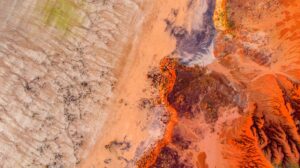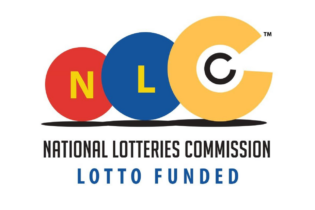This year’s National Water Week drives the agenda of ‘Water for All’, an objective which SRK Consulting has supported in many ways – one of which has been through its application of isotope technology.
Ismail Mahomed, principal hydrogeologist at SRK Consulting, has recently used isotopes to identify the source of water contamination, as a first step in resolving this threat to water security. South Africa is classified as a semi-arid country, emphasised Mahomed, and cannot afford the pollution of its scarce water resources. In a recent address to the conference of the Network for Industrially Contaminated Land (Nicola), he explained how isotopes had proved a valuable and cost-effective technology to help resolve a contamination issue at a metals processing plant. Fingerprinting “A particular environment will acquire a characteristic isotopic composition or signature by virtue of the hydrogeochemical processes involved,” he said. “We can use this isotope signature for ‘fingerprinting’ – giving us clues to trace the source of water, and hence of the contamination.” In his case study, he explained how spatial variations in deuterium and Oxygen-18 occur in the hydrological cycle – leading to a lower proportion of these isotopes in rain that falls inland than in rain falling at the coast. “These are among the variables we can use to identify whether the source of water is from surface dams or from groundwater – as the signature from the rainfall will be retained in groundwater,” said Mahomed. “Evaporation also has an impact on this signature as preferentially lighter isotopes will evaporate from the oceans and surface water.” Tracing groundwater One of the aspects of the case study was considering the evaporation signature of some of the ponds on the client’s site – a signature which was different to the groundwater. Data analysed during this project suggested that there was some mixing of water from different sources in the underdrain of one of the ponds. He explained that hydrology can benefit greatly from using isotopes in the tracing of groundwater, to help determine the vulnerability and sustainability of water resources. “The technology helps hydrologists to determine factors affecting water quality such as sub-surface processes, geochemical reactions and reaction rates,” he said. “It can also be used to better understand the relationship between surface and groundwater, and even to detect leaks.” The United Nations’ World Water Day is also being celebrated in March, with the organisation warning that countries are not making enough progress in meeting Sustainable Development Goal (SDG) 6. This goal aims to ensure safely managed water and sanitation by 2030 for all the world’s population. The UN has said that there is an urgent need to accelerate change, by going beyond ‘business as usual.Must move faster
“The latest data show that governments must work on average four times faster to meet SDG 6 on time, but this is not a situation that any single actor or group can solve,” reported the UN. It has called upon global citizens to “be the change you want to see in the world” – by taking action on how they use, consume and manage water. Among the approaches for accelerating action in water management that SRK Consulting has promoted in its engagements with clients is water stewardship. With water management becoming a key risk for industries like mining, consulting firm EY has rated water as the leading environmental, social and governance (ESG) risk in mining for 2023. SRK Consulting principal consultant Fiona Sutton explained that water stewardship offered a practical process for companies in mining and other sectors to collaborate more closely with partners and stakeholders in managing their shared water resources. “This approach is also supported by valuable best practice tools like the International Water Stewardship Standard from the Alliance for Water Stewardship (AWS),” said Sutton. “The AWS Standard offers a globally applicable framework for major water users to understand their catchment and their own water use and impacts, with practical guidance on how to effectively manage these impacts.” Water security Growing concerns about South Africa’s water security saw Finance Minister Enoch Godongwana announce – in his recent Budget Speech – planned expenditure on national water infrastructure of R121 billion over the medium term. This included R3,7 billion in municipal water infrastructure, through the National Budget facility for infrastructure. SRK Consulting has been extensively involved in water infrastructure, including facilities for rural water supply points. Gert Nel, principal hydrogeologist and partner at SRK Consulting, explained that these water points were vital in providing water to communities, schools and clinics which could not be reached through bulk water supply systems. Rural support “However, there is a need to provide more support for these stand-along supply points, to ensure they are reliable and sustainable,” said Nel. “After the installation of these facilities – such as boreholes and water treatment systems – there is seldom any backup support or funding to sustain their continuous operation.” When such facilities are planned, it is necessary to also include aspects such as training, awareness raising, mentoring and on-going support. For instance, there needs to be ready access to technical support for breakdowns, and training on how to regularly maintain or service the equipment. This will extend the life of the installations and improve their value to the community – while reducing the risk of water-borne diseases. SRK Consulting works with both the public and private sectors in their water management interventions, and applies a range of scientific and engineering disciplines to help achieve the goal of ‘Water for All’.





